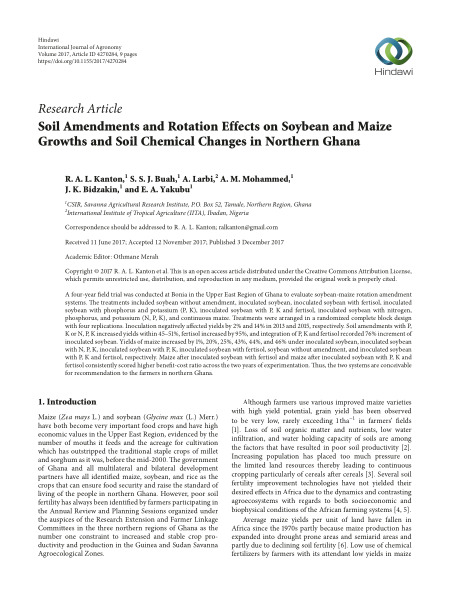Soil amendments and rotation effects on soybean and maize growths and soil chemical changes in northern Ghana
Abstract
A four-year field trial was conducted at Bonia in the Upper East Region of Ghana to evaluate soybean-maize rotation amendment systems. The treatments included soybean without amendment, inoculated soybean, inoculated soybean with fertisol, inoculated soybean with phosphorus and potassium (P, K), inoculated soybean with P, K and fertisol, inoculated soybean with nitrogen, phosphorus, and potassium (N, P, K), and continuous maize. Treatments were arranged in a randomized complete block design with four replications. Inoculation negatively affected yields by 2% and 14% in 2013 and 2015, respectively. Soil amendments with P, K or N, P, K increased yields within 45–51%, fertisol increased by 95%, and integration of P, K and fertisol recorded 76% increment of inoculated soybean. Yields of maize increased by 1%, 20%, 25%, 43%, 44%, and 46% under inoculated soybean, inoculated soybean with N, P, K, inoculated soybean with P, K, inoculated soybean with fertisol, soybean without amendment, and inoculated soybean with P, K and fertisol, respectively. Maize after inoculated soybean with fertisol and maize after inoculated soybean with P, K and fertisol consistently scored higher benefit-cost ratio across the two years of experimentation. Thus, the two systems are conceivable for recommendation to the farmers in northern Ghana.

